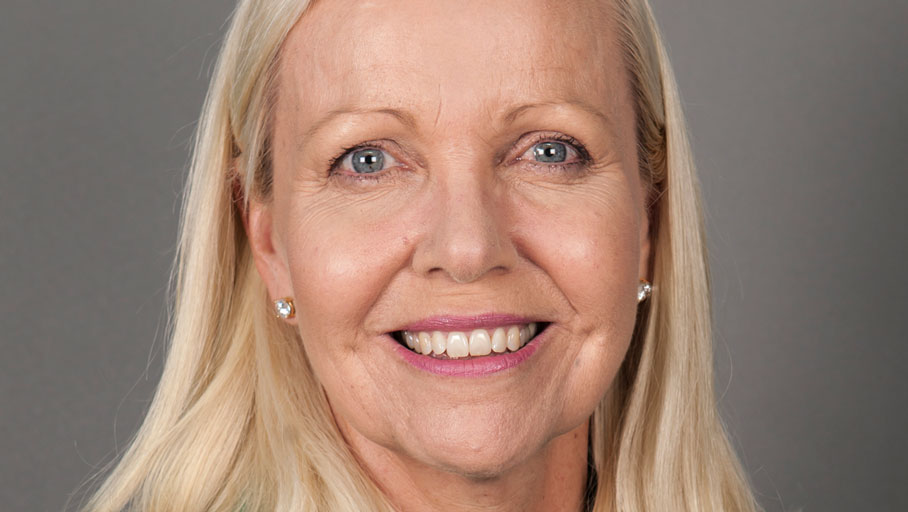The link between the wellbeing of a principal and the healthy functioning of a school's climate to boost student outcomes is a focus for 2020, writes KIM COTTON.
In recent studies on the wellbeing of principals in Australian school systems, leading child and adolescent health academic, Professor Donna Cross, said the differences between schools’ student academic, wellbeing, behaviour and attendance outcomes is associated with the quality of the principal’s leadership, the school culture and ultimately the principal’s wellbeing.
“When schools are run well, children do much better in terms of their academic outcomes, behavioural outcomes and their own health and wellbeing outcomes, all of which augurs well when a principal is functioning well and the leadership team is working effectively,” said Professor Cross, CoLab Director and Program Head, Development and Education at The Telethon Kids Institute in Perth.

Professor Donna Cross is presenting her work on school leader wellbeing at the AIS Governance Symposium.
Professor Cross is the keynote at the upcoming AIS Governance Symposium. Her address will focus on the protective factors required to support a principal at the school, their staff and students with the aim of creating the best educational environment for students to thrive.
“In telling a story of principal wellbeing, it’s not enough to address only how stressful the role can be and how complex it is; we need to also consider the factors that will prevent, protect and promote the wellbeing of principals to help them to cope with that demand."
“Our research found that principals can cope with high levels of stress if these are balanced with high levels of personal quality protective factors such as a strong sense of purpose, gratefulness and hope,” she said.
“In telling a story of principal wellbeing, it’s not enough to address only how stressful the role can be and how complex it is; we need to also consider the factors that will prevent, protect and promote the wellbeing of principals to help them to cope with that demand.”
Professor Cross has been working on the Primary Principals’ Wellbeing Project, run in conjunction with Catholic Education Western Australia, to investigate principal wellbeing and resilience.
“The principal’s role has become more complex over time. Once they needed to only be an outstanding educator and educational leader and now they’re expected to be a business leader running building programs, and managing complex budgets and taking on so many other non-teaching and learning responsibilities.,” Professor Cross said.
"In our research focused on finding ways to improve outcomes for students, particularly their wellbeing outcomes, we found that we also needed to focus more on what could be done to help support the wellbeing of principals, their leadership and staff."
“In our research focused on finding ways to improve outcomes for students, particularly their wellbeing outcomes, we found that we also needed to focus more on what could be done to help support the wellbeing of principals, their leadership and staff,” she said.
The project has shown protective factors such as gratefulness, happiness and social support were able to “buttress” a principal’s wellbeing against risks such as high stress and burnout associated with the role of leading a school.
“One of the strongest protective factors was principals’ love of teaching and supporting students; ‘I do this job because I feel I am making a difference’," Professor Cross said. “Principals report feeling a huge sense of achievement that comes with the role.”

Other protective factors include the large amount of autonomy principals have in their role leading the school, the influence they can have on school culture, and the value of establishing distributed leadership where members of the executive team work together to support the school’s leadership.
“The board has a very keen responsibility to be observing how the principal is operating and making sure they’re creating an environment that enables the principal to function at his or her best.”
The project has shown factors such as gratefulness, happiness and social support were viewed as “buttresses” against risks such as high stress and burnout associated with the role of leading a school.
Professor Cross said school boards need to proactively support their principal’s wellbeing and for this be seen as part of the school’s risk management strategy.
“There’s a general awareness that it’s a really tough job and there are a lot of demands that principals are required to respond to in their role, but attention must be given to providing effective levels of governance support.
No school board wants to lose a good principal, Professor Cross said.
“So the question needs to be asked: ‘What should we be doing to ensure we are providing the best possible environment for principals to function effectively’.
AISNSW supports principal wellbeing by working with schools to develop effective whole-school approaches that create safe and supportive environments. Additionally, the Evidence Institute at AISNSW is undertaking comprehensive work in leader wellbeing, which will inform further support for member schools.